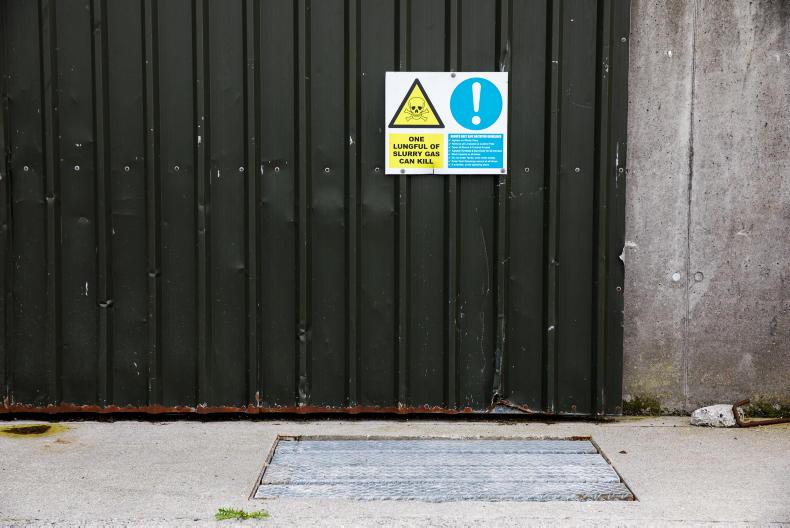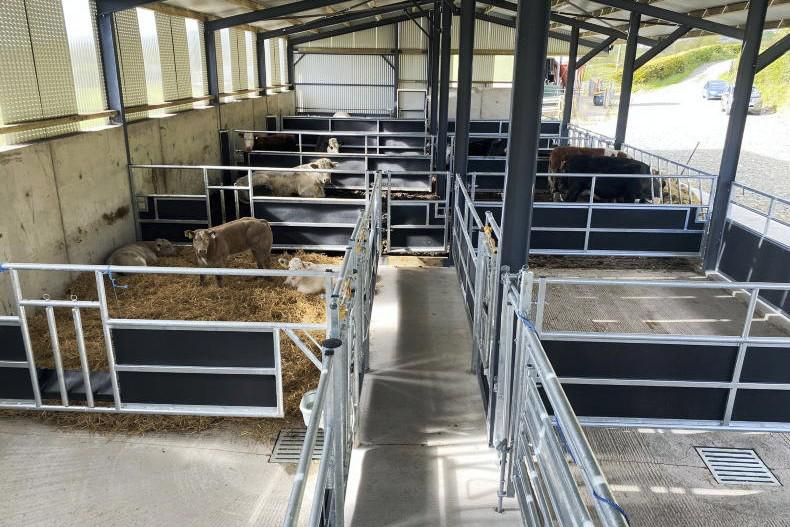Teagasc and the Health and Safety Authority (HSA) renewed a joint initiative agreement on Friday to promote farmer safety and health for the next three years.
It comes in the face of growing safety challenges on farms, as they expand and the farming population continues to age.
Agriculture accounts for less than 6% of the Irish workforce, but often accounts for up to 50% of work-related deaths.
Last year 24 farmers died in work-related accidents, with 14 of them aged 65 or older.
This week, doctors at Cork University Hospital expressed concern about the level of farm injuries it dealt with.
Under the new Teagasc/HSA agreement:
Research into farm accidents in the Teagasc National Farmer Survey will be finalised. A jointly funded study on the usefulness of discussion groups in promoting farm safety is also underway.Teagasc and agricultural consultants will train farmers on the revised Farm Safety Code of Practice. Completion of the training is also a requirement for farmers to secure TAMS II funding from the Department of Agriculture. Teagasc will host safety and health exhibits at major events in 2018, including the National Beef Open Day at Teagasc Grange on 26 June.A European COST Action (Co-operation in Science & Technology) meeting in March will see Teagasc, the HAS and other organisations share ideas on improving farm safety throughout Europe. In April, the World Congress on Occupational Health and Safety will include presentations on Teagasc, HSA and UCD research on farm safety and health.Real actions
Martin O’Halloran, HSA chief executive, said that while the approach to farm safety and health is generally well understood by farmers and the broader farming community, “this awareness must now be matched by real actions on the ground”.
He warned: “Farmers face a wide variety of hazards and risks on a daily basis and must proactively manage them to ensure a safe and healthy working life.”
Farmer workloads
Teagasc director Professor Gerry Boyle said Teagasc will be emphasising the need for improvements in work organisation to cut farmer workloads in its advisory programmes in 2018.
“Working long hours and hurrying have been shown to be major contributory factors in farm accidents,” said Boyle.
“This may also be a contributory factor to the rise in accidents among older farmers in recent years.”
Read more
2,000 farm safety inspections for 2018
Elderly farmers lead fatalities in ‘horrific year’ for accidents
Farmers should not need encouragement to ‘save their own lives’
Teagasc and the Health and Safety Authority (HSA) renewed a joint initiative agreement on Friday to promote farmer safety and health for the next three years.
It comes in the face of growing safety challenges on farms, as they expand and the farming population continues to age.
Agriculture accounts for less than 6% of the Irish workforce, but often accounts for up to 50% of work-related deaths.
Last year 24 farmers died in work-related accidents, with 14 of them aged 65 or older.
This week, doctors at Cork University Hospital expressed concern about the level of farm injuries it dealt with.
Under the new Teagasc/HSA agreement:
Research into farm accidents in the Teagasc National Farmer Survey will be finalised. A jointly funded study on the usefulness of discussion groups in promoting farm safety is also underway.Teagasc and agricultural consultants will train farmers on the revised Farm Safety Code of Practice. Completion of the training is also a requirement for farmers to secure TAMS II funding from the Department of Agriculture. Teagasc will host safety and health exhibits at major events in 2018, including the National Beef Open Day at Teagasc Grange on 26 June.A European COST Action (Co-operation in Science & Technology) meeting in March will see Teagasc, the HAS and other organisations share ideas on improving farm safety throughout Europe. In April, the World Congress on Occupational Health and Safety will include presentations on Teagasc, HSA and UCD research on farm safety and health.Real actions
Martin O’Halloran, HSA chief executive, said that while the approach to farm safety and health is generally well understood by farmers and the broader farming community, “this awareness must now be matched by real actions on the ground”.
He warned: “Farmers face a wide variety of hazards and risks on a daily basis and must proactively manage them to ensure a safe and healthy working life.”
Farmer workloads
Teagasc director Professor Gerry Boyle said Teagasc will be emphasising the need for improvements in work organisation to cut farmer workloads in its advisory programmes in 2018.
“Working long hours and hurrying have been shown to be major contributory factors in farm accidents,” said Boyle.
“This may also be a contributory factor to the rise in accidents among older farmers in recent years.”
Read more
2,000 farm safety inspections for 2018
Elderly farmers lead fatalities in ‘horrific year’ for accidents
Farmers should not need encouragement to ‘save their own lives’








SHARING OPTIONS